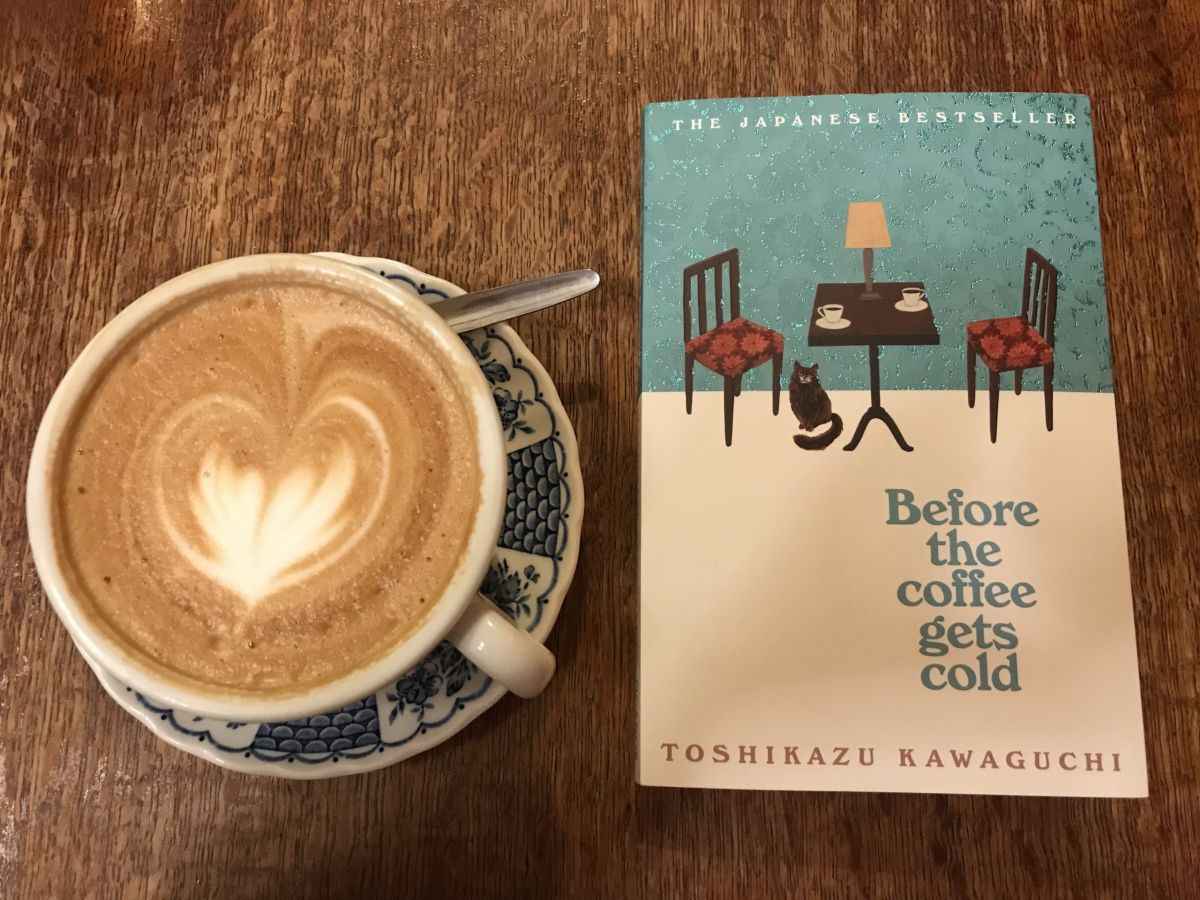Review: Before the Coffee Gets Cold
By Maisie Scott

Toshikazu Kawaguchi’s 2013 novel is an exploration of time travel and the art of coffee making. Before the Coffee Gets Cold was translated from Japanese to English by Geoffrey Trousselo.
Kawaguchi’s novel disrupts the linear narrative of time as his characters launch themselves (albeit only momentarily) into the past and future. The time travellers are exclusively women who go back in time to speak to their lovers, family members, and husbands.
The rules of the time travel are clearly laid out in the book. Kazu oversees the magical activity, running through the travel guidelines before each customer begins their journey.
Here’s a brief summary of the travel rules: you can only meet people who have previously visited the cafe. The time travel can only take place if you’re sitting on one specific chair in the cafe. You must not move from your allocated seat.
‘No matter how hard one tried while back in the past, one cannot change the present’
There is also a strict time limit rule constructed around the coffee. All the travellers must finish the coffee before it gets cold and then return to the present. The most tragic part is ‘The second rule – no matter how hard one tried while back in the past, one cannot change the present’.
Kawaguchi has justified the second rule by stating that ‘I wanted the story to be realistic’. The time travellers are unable to change the present which creates a harsh sense of reality despite the magic of their time travel.
Before the Coffee Gets Cold resists neat genre classification. The tags of fantasy, translated fiction, novel, play and realism all seem applicable. Kawaguchi’s novel was originally written as a play before it was adapted into novel form.
The short novel arguably occupies a space known as ‘magic realism’ as Kawaguchi adds fantastical elements to the familiar space of the coffee shop. Before the Coffee Gets Cold also speaks to the modern fascination with time travel writing as popularised by H.G. Wells’ novel The Time Machine.
The identity of the time travellers does not serve to strike a feminist tone. Before the Coffee Gets Cold can instead be read as an exploration of emotional labour as Fumiko and Kohtake go back in time to therapise their ex-boyfriend and husband respectively.
‘Tears streamed down her face.’
Before the Coffee Gets Cold is able to create pathos for the characters who yearn in earnest to change the past. Kohtake goes back in time to speak to her husband before the onset of his Alzheimer’s. The novel delves into Kohtake’s emotional journey during this meeting. During the ‘fleeting moment’ Kohtake shares with her husband ‘tears streamed down her face’.
Kawaguchi offers a surface level exploration of the emotional lives of his time travellers. However, the novel delves deeper into the ceremony of coffee making. The cafe has a rich history as it first opened its doors in the late 19th century. Nagare uses a variety of coffee brewing methods including the ‘siphon method’ and the ‘hand-drip style’.
The coffee-making process is described with considerable sensory detail. If Benjamin Obler updated his 2009 list of the ‘top ten fictional coffee scenes’ for the Guardian then Before the Coffee Gets Cold would easily make the cut.
Kawaguchi has recently released another novel titled Tales in the City. The novel was released on the 17th of September 2020, and it is a follow up to Before the Coffee Gets Cold. Check out Kawaguchi’s work if you fancy a break from the inescapable reality of the pandemic.
This review copy was provided by Blackwell’s Manchester. Before the Coffee Gets Cold is available to purchase online.







